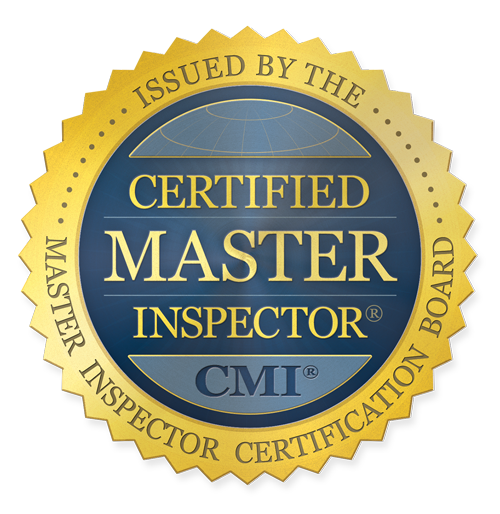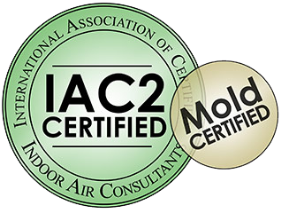A 4 Point inspection is the “go-to” type of inspection for realtors and insurance carriers. However, there are certain situations when a complete home inspection makes the most sense.
Difference Between a 4 Point Inspection vs. The Full Version
Click Here to read a complete and detailed difference between 4 point and full home inspections. In the meantime, here’s a general rundown.
4 Point Home Inspection
The 4 point inspection takes a detailed look at four of your home’s major structural and mechanical systems:
- Roof: Our job is to evaluate every aspect of your roofing system, from the roof foundation, underlayments, and fastener installation to shingle installation and current/potential leak risks.
- Plumbing: Plumbing materials installed in interior walls, attics, and soffits can have slow leaks that go for months or years without detection. We also identify if pipes are outdated or corroding and whether or not your plumbing and home water features are draining correctly.
- HVAC system: We’ll note the age of your HVAC unit, whether or not the unit and related equipment were installed correctly, look for refrigerant leaks, and identify sensor malfunctions. Inspectors also note the integrity of the ducts, identifying any breaks, mold, or pest issues.
- Electrical: Inspectors assess the status of a home’s electrical system, including the meter, electrical control panels, and wiring. We look for any signs your home is at risk for electrical fires, often caused by outdated systems, electrical components, wiring that wasn’t installed to code, exposed wires, or over-fusing at breaker panels.
Homeowners are most likely to request a 4 point home inspection when:
- They are purchasing a home built within the past 10 to 15 years but want to assess the status/quality of major home inspections before making an offer.
- Planning to change insurance carriers
- Interested in potential homeowner’s insurance premium savings
Full Home Inspection
During a full home inspection, we do evaluate the four points listed above, but we perform more general inspections of those and the following items:
- Grading, foundation, drainage
- Exterior siding/stucco and moisture protection
- Evidence of wood-destroying insects (WDOs)
- Room by room walkthroughs (evaluating house settling that creates cracks/structural instability, the integrity of drywall/stucco, properly installed electrical/lighting fixtures, etc.)
- Inspection of garage
- Safety features (adequately located and installed smoke and CO detectors, fire sprinkler systems, etc.)
- Any evidence of or previous or existing storm, leak, or moisture damage
- Infrared inspections (these are offered if we notice evidence of continuing or historical leak issues or moisture damage that hasn’t been repaired)
- Insulation and ventilation
- Potential issues with the lot or landscaping features (are there trees, limbs, or other structures that could compromise the structural integrity of your home in a high wind or storm situation?)
5 Indications Your Home Needs a Full Home Inspection
There are five scenarios or indicators signaling you need something more than 4 point inspections offer. Connect with local, InterNACHI-certified home inspection company if:
1. You’re purchasing a home built 15 years ago or more
Our area has been through the storm season wringer these past couple of decades. Unfortunately, investors often perform cosmetic repair work to cover up storm or water damage rather than having these issues legitimately fixed. Even if a home wasn’t damaged in a storm, investors or sellers may opt to cover up problems that should be disclosed so you don’t overpay for a home requiring tens of thousands of dollars worth of repairs or replacements.
That means prospective homebuyers risk purchasing a home with latent structure, drainage, or water damage issues without knowing better. Also, the recent passing of Florida’s SB 76 permits homeowner’s insurance carriers to drop or refuse insurance policies to homeowners with roofs that are 15 years old or older. If a home’s roof is that old, the odds are other home systems are the same age or older, and these should be thoroughly examined.
If you’re purchasing a home built 15 years ago or more, let your realtor know you want a full home inspection. This is the best way to fully uncover the home’s structural and systems status, so you can make an informed purchase decision and create a bidding strategy that includes legitimate price cuts or repair credits.
2. You waived a building inspection to purchase a home
We understand the current seller’s market means fierce competition when buying a home in Volusia county. However, you should never skip a home inspection before making an offer. If the house is old enough or suspicious enough, that’s what the sellers want, and you’re better off taking a pass.
However, if you’ve already purchased a home after waiving an inspection, schedule a full home inspection ASAP to make any necessary repairs or replacements before you get too settled in.
3. The home was in the path of a severe storm or hurricane
Check historical records to see if your home has survived a previous hurricane. If so, you want to skip the 4 point option and head straight to the complete home inspection category.
Homes that survived hurricanes require extra-special care in their drainage, dry out, mold/mildew/rot mitigation, and repair process. If the work wasn’t performed to current code standards, your home could be hiding latent historical storm damage that compromises its integrity.
Examples of storm damage that nefarious contractors or handymen “covered up” include:
- Shingles re-laid over a damaged roof
- Damaged roofing underlayments
- Apparent water damage in the attic
- Moisture-compromised insulation in attics and crawl spaces
- Leaks or dampness in interior and exterior walls
- Damage to the foundation
- Poor lot drainage
- Exterior wall damage hidden by overlaying of bare-minimum siding products
- Damage to plumbing or electrical wiring
Our full home inspection will uncover any previous storm or water damage that compromised the home and was covered up without being correctly repaired.
4. There are signs or evidence of mold/mildew
Mold and mildew are insidious and often hidden from the naked eye. They thrive in dark, moist environments, which means they can lurk in the hidden nooks and crannies in a home. If you’ve recently purchased a home, you can’t imagine what a new coat of paint and strategically placed furnishings can do to hide evidence of mold when a home’s for sale.
If you notice any signs or evidence of mold, we highly recommend getting a whole home inspection because the odds are that’s not the only unseen issue hiding in the house’s structure. The most common signs of mold/mildew are:
- Strange musty or “old” smells
- Stains (rust, brown, orange, or green/black) on walls or ceilings
- Known leaky areas
- High humidity levels
- Mold spots on window/door frames and trim
Mold does severe damage to a home’s structural features, including load-bearing supports, rafters, trusses, insulation, drywall, and more. It also compromised a building’s indoor air quality, which increases occupants’ risk of
Super Inspection Pros Gives Honest Recommendations
The team at Super Inspection Pros is happy to let you know whether your home requires a 4 point or full home inspection. We are Volusia County’s most trusted home inspectors for homeowners, realtors, and insurance companies. Contact us to schedule your home inspection, or call 386-279-0802. We guarantee 24-hour turnarounds and easy-to-read, detailed inspection reports.

